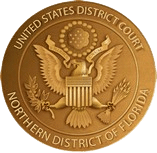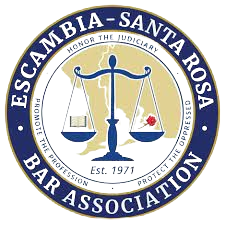
Facing assault and battery charges in Florida can be a scary and overwhelming experience. These charges can come with serious penalties, including jail time, fines, and a criminal record that could impact your future.
Understanding your legal options and the importance of having a skilled local defense attorney on your side is crucial. Explore these criminal charges and how to effectively defend against them.
Understanding Assault & Battery Charges in Florida
Before diving into defense strategies, it’s important to understand what assault and battery charges actually mean.
- Assault: Assault is when someone threatens to harm another person, making them afraid that they might get hurt. For example, if someone raises their fist and threatens to punch someone else, that could be considered assault, even if no one is actually touched.
- Battery: Battery is when someone intentionally touches or hits another person without their permission. This physical contact doesn’t have to cause injury; it just needs to be unwanted. For instance, if someone shoves another person without their consent, that could be considered battery.
Sometimes, these charges can be more serious, like if a weapon is involved or if the victim is seriously hurt. These are called “aggravating factors” and can lead to even tougher penalties.
Possible Defenses Against Assault & Battery Charges in Florida
When facing assault and battery charges, there are several defense strategies that a lawyer might use to help you. Below are some of the most common defenses:
1. You Were Acting In Self-Defense
One of the most common defenses against assault and battery charges is self-defense. This means that you only acted to protect yourself because you believed you were in danger.
In Florida, you’re allowed to defend yourself if you think someone is going to harm you, and you don’t have to run away first.
Thanks to Florida’s “Stand Your Ground” law, you are allowed to use force if they believe it’s necessary to protect themselves from serious harm. That action includes deadly force.
When Does Self-Defense Apply?
For self-defense to work as a defense, you must show that you didn’t start the fight and that you only used enough force to protect yourself.
If someone attacked you, and you pushed them away to protect yourself, that might be considered self-defense.
2. You Were Acting in the Defense of Others
Like self-defense, you might also argue that you acted to protect someone else. This is known as the “defense of others.”
In this case, you would need to show that the person you were protecting was in danger and that you stepped in to help them.
When Is Defense of Others a Valid Argument?
For example, if you saw someone being attacked and you stepped in to stop the attacker, your actions might be considered defense of others.
It’s important to note that, just like in self-defense, the amount of force you used to protect someone else has to be reasonable. You can’t use more force than necessary to stop the threat.
3. You Did Not Intend to Cause Harm
Assault and battery charges usually require the prosecution (the lawyers trying to prove you’re guilty) to show that you intended to cause harm.
If you didn’t mean to hurt anyone, then the charges might not stick. This defense is known as “lack of intent.”
How Does This Defense Apply?
For example, if you accidentally bumped into someone in a crowded place and they got hurt, that’s likely not battery because you didn’t mean to touch them or hurt them.
Another example could be if you were playfully roughhousing with a friend, and they got hurt by mistake.
If you didn’t intend to harm them, your lawyer might argue that you didn’t have the intent required for an assault or battery charge.
4. False Accusations or Mistaken Identity
Sometimes, people are falsely accused of crimes they didn’t commit. This can happen if someone mistakenly identifies you as the person who committed the assault or battery.
It can also happen if someone lies about what happened.
If you’ve been falsely accused, your lawyer will work to prove that you didn’t do what you’re being accused of. This might involve gathering evidence that shows you were somewhere else when the crime happened (an alibi), finding witnesses who can back up your story, or showing that the accuser has a reason to lie.
5. The Prosecution Does Not Have Credible Evidence
For a conviction to happen, the prosecution must provide strong and believable evidence that proves you’re guilty beyond a reasonable doubt.
Without enough evidence, or if the evidence is weak or unreliable, your lawyer might argue that the case against you should be dismissed.
How Do You Show There Is Not Enough Evidence?
Your attorney may question the reliability of witnesses who say they saw what happened.
Maybe the witness didn’t see things clearly, or perhaps they’re misremembering the details. They could also examine the prosecutor’s evidence during the discovery phase and argue it is not credible.
6. You Had Permission to Touch The Alleged Victim
In some cases, the person who was allegedly assaulted or battered may have actually consented to the physical contact. This defense is known as “consent.”
For example, if you and another person agreed to a friendly wrestling match or a physical game, and they got hurt, they might have consented to the risk of getting hurt during that activity.
This Defense Can Be Challenging To Use
Consent can be tricky to prove. Your lawyer would need to show that the other person clearly agreed to the contact and that you didn’t go beyond what was agreed upon.
Let Mitkevicius Help You Defend Against Assault & Battery Charges
Facing assault and battery charges in Florida is serious, but it doesn’t mean you’re out of options. There are several defense strategies that a skilled Pensacola attorney can use to fight the charges and protect your rights.
Whether it’s proving you acted in self-defense, showing that there’s not enough evidence, or challenging the credibility of witnesses, having a strong defense can make all the difference.
If you or someone you know is facing these charges, it’s important to seek legal help as soon as possible. Attorney Josef Mitkevicius is ready to hear your story and start your defense.
At Mitkevicius Law, PLLC, we have the experience and dedication needed to defend you against these charges and work toward the best possible outcome. Contact our defense attorneys today for a free consultation and let us help you navigate the legal process.
Call 850-361-2142 and speak with an experienced Pensacola assault and battery lawyer today.





